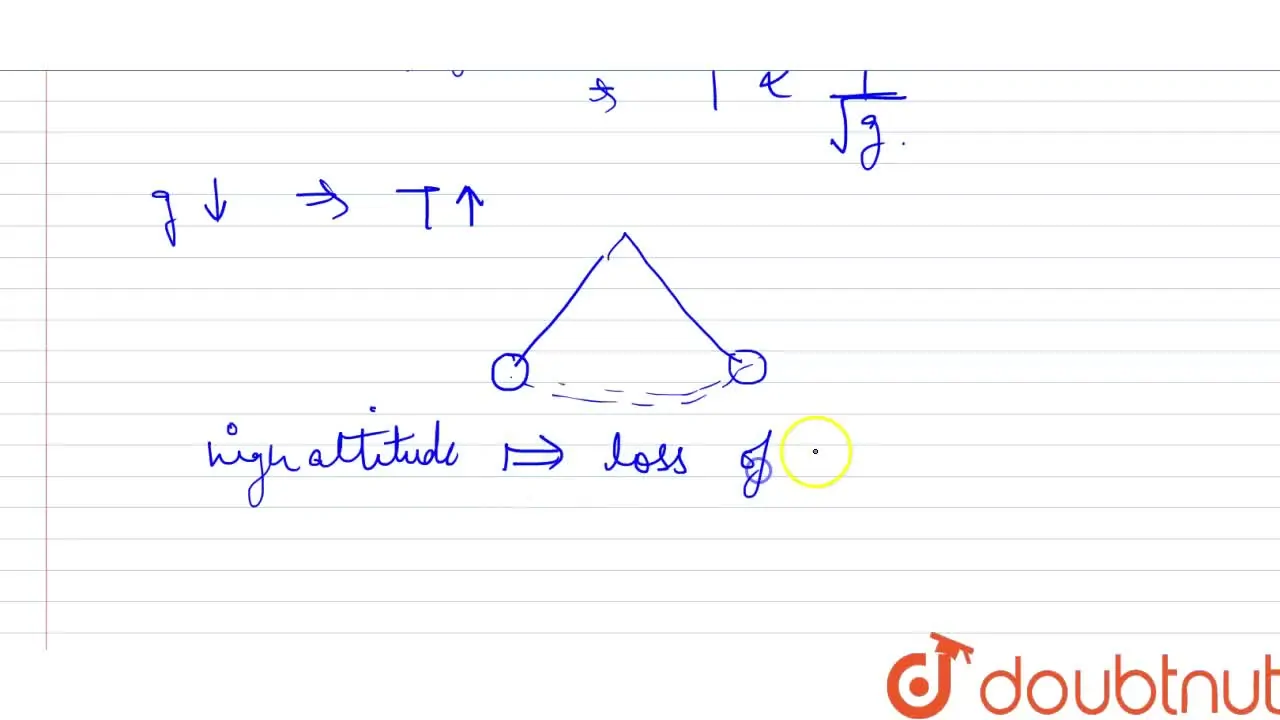A pendulum clock is taken to a high altitude. Will it gain or lose time?
At high altitude, the value of acceleration due to gravity (g) is less than its value on the surface of the earth. As time period of a period of a simple pendulum T=∝1√g, it will increase with the decrease in value of g. So, it will take more time for the pendulum clock to complete one oscillation and hence, it will lose time.
Related Playlists
- BOOK - MODERN PUBLICATIONCHAPTER - OSCILLATIONS EXERCISE - TOUGH & TRICKY PROBLEMS9videos
OSCILLATIONS
- BOOK - MODERN PUBLICATIONCHAPTER - OSCILLATIONS EXERCISE - NCERT FILE (Textbook Exercises)19videos
OSCILLATIONS
- BOOK - MODERN PUBLICATIONCHAPTER - OSCILLATIONS EXERCISE - PRACTICE PROBLEMS 220videos
OSCILLATIONS
- BOOK - MODERN PUBLICATIONCHAPTER - MOTION IN A STRAIGHT LINE EXERCISE - CHAPTER PRACTICE TEST16videos
MOTION IN A STRAIGHT LINE
- BOOK - MODERN PUBLICATIONCHAPTER - PHYSICAL WORLD EXERCISE - Revision exercises (Long answer questions)6videos
PHYSICAL WORLD
Similar Questions
A pendulum clock becomes
View SolutionA pendulum clock is taken to the bottom of a deep mine. Will it gain or lose time? How should its length be altered to correct the time?
View SolutionA pendulum clock keeping correct time is taken to high altitudes
View SolutionStatement-1 : If a pendulum clock is taken to a mountain top, it gains time.
Statement-2 : The value of acceleration due to gravity is low at mountain top than at plen.View SolutionAS pendulum clock gives correct tiem at the equator, Wil it gain tme r loose time as it is taken to the poles?
View SolutionA clock which keeps correct time at 20∘C has a pendulum rod made of brass . How many seconds will it gain or lose per day when temperature falls to 0∘C ? [α=18×10−6/∘C]
View SolutionA pendulum clock is taken 1km inside the earth from mean sea level. Then the pendulum clock
View SolutionIf the length of a correct pendulum clock is raised by 0.1%, what will be the effect on the time of the clock in a day ?
View SolutionWill pendulum clock lose or gain time on hills or inside the mines ?
View SolutionA pendulum clock on the earth is taken on the Jupiter, then it will run
View Solution


